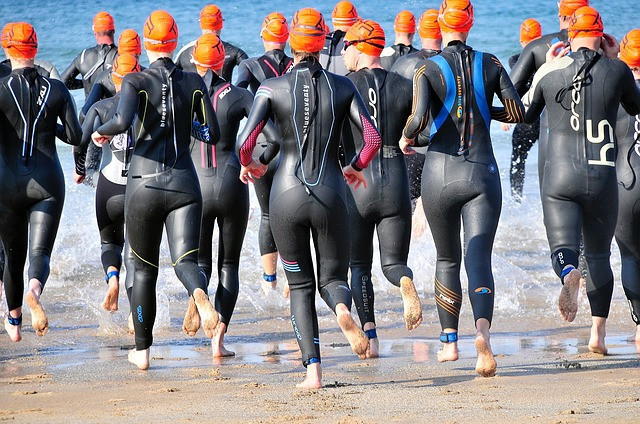
When Nature Turns Unkind: Poor Sea Water Quality Impacts World Triathlon Championships
Introduction:
Sports enthusiasts and athletes from around the world gathered with great excitement in Sunderland, UK, for the highly anticipated World Triathlon Championships. However, what should have been a celebration of athletic prowess and determination turned into a concerning health crisis as 57 athletes fell ill due to the poor quality of the sea water. This unfortunate incident shed light on the importance of environmental stewardship and the consequences of neglecting our natural resources. In this blog post, we will delve into the incident at the World Triathlon Championships, its implications, and the urgent need for safeguarding our water bodies to protect both human health and the environment.
1. The World Triathlon Championships:
The World Triathlon Championships are a prestigious event that draws top triathletes from across the globe. Athletes train tirelessly for the opportunity to showcase their skills and compete on an international stage. The city of Sunderland was thrilled to host this event, attracting visitors and promoting the sport’s spirit and camaraderie.
2. The Shocking Turn of Events:
During the triathlon event, a shocking turn of events occurred when a significant number of athletes became ill after swimming in the sea. The cause was soon revealed to be the poor quality of the water, leading to a variety of health issues ranging from skin rashes to respiratory problems. The incident raised serious concerns about the impact of pollution on our water bodies.
3. The Consequences of Water Pollution:
Water pollution is a pressing global issue that affects not only marine life but also human health. Industrial runoff, agricultural waste, untreated sewage, and plastic waste are some of the major contributors to water pollution. When these pollutants accumulate in our oceans, rivers, and lakes, they pose a serious threat to both aquatic ecosystems and the people who come into contact with the contaminated water.
4. Environmental Stewardship:
The incident at the World Triathlon Championships serves as a stark reminder of the urgent need for environmental stewardship. As a society, we must take responsibility for our actions and strive to protect and preserve our natural resources. Implementing stricter regulations for waste disposal, promoting sustainable practices, and investing in water treatment facilities are essential steps to safeguarding our water bodies.
5. Raising Awareness:
The unfortunate event in Sunderland should be a wake-up call for governments, organizations, and individuals worldwide. It highlights the importance of raising awareness about water pollution and its far-reaching consequences. Educational campaigns, community initiatives, and collaborative efforts can help mobilize people to take action and work towards cleaner and healthier water bodies.
6. Striving for Solutions:
Addressing water pollution requires collective action and cooperation on a global scale. Governments must prioritize environmental protection and allocate resources to implement effective policies. Industries should adopt eco-friendly practices, and individuals can contribute by reducing plastic waste, supporting local clean-up initiatives, and advocating for environmental conservation.
Conclusion:
The incident at the World Triathlon Championships in Sunderland, UK, serves as a stark reminder of the critical need to protect our water bodies from pollution. It is a wake-up call to the global community to take responsibility for our actions and prioritize environmental stewardship. By coming together and working towards cleaner and healthier water bodies, we can ensure a safer and more sustainable future for both humans and the environment. Let this unfortunate event be the catalyst for positive change and a renewed commitment to preserving our precious natural resources.